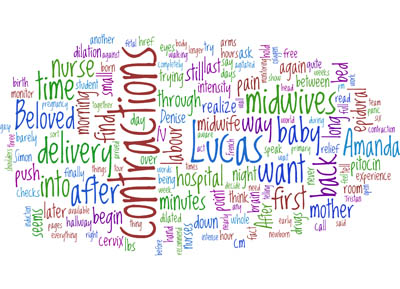Did you know that Wednesday January 27 is Family Literacy Day in Canada? From the Web site:
Family Literacy Day takes place every year on January 27. ABC CANADA Literacy Foundation and Honda Canada created the day in 1999 to encourage families to read and learn together. […] Literacy is more than books. There are many ways to strengthen your literacy skills – all it takes is practicing for 15 minutes every day. Reading, writing, playing a game, following a recipe or even singing a song all help prepare children for challenges ahead and sharpen skills for adults.
Now, I’m guessing that I’m preaching to the choir when I tell you that literacy is one of the most important tools you can give your children, but I’m always looking for new tips and ideas for turning learning into a fun family activity.
Here’s five ideas for inspiring literacy in your family every day:
- Encourage your kids to tell stories. When you’re waiting in line, or in the car, or otherwise find yourself with time on your hands, create a story together based on something around you. See that man with the bright yellow t-shirt? What do you think he had for breakfast this morning? Why is he wearing that yellow shirt? Is his favourite colour yellow? Do you think he wears yellow every single day, one day wearing yellow pants and one day wearing yellow underwear? Why? You can get really silly with this, but it’s great fun and my kids love it.
- Did you know there’s a Sesame Street podcast? You know I love Sesame Street, and you know I’m fixated on my iPod. What could be better than the Word on the Street podcast from the creators of Sesame Street?!
- Sing it! I mentioned the other day how astonished I am that Lucas, not yet two, knows the melody if not all the words to Twinkle Twinkle Little Star, and he’s been calling out the last word of each line to You are my Sunshine for months now. This year’s official theme for Family Literacy Day is “Sing for Literacy” and ABC Canada has provided access to free karaoke videos online.
- Wear your words. This is a neat idea for older kids from ABC Canada’s family literacy tips pdf: write a story or a poem on an old pair of jeans. Love this idea!
- Make yer own books. Tristan was about three when I helped him make his first book, made of pictures cut out of a Thomas the Tank Engine catalogue. He made his own first comic book around age five. All you need is a single letter-sized page cut into quarters and stapled along one edge and voilà : instant 8-page mini-book ready for words or scribbles or stickers or whatever your child can think of. If you like, get fancy and use a hole-punch and ribbon or yard to bind the side. The only problem with these is that the kids make them by the pile and I never have the heart to throw them out!
Care to share? Add your thoughts for making literacy fun in the comment section!




